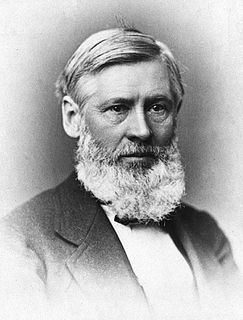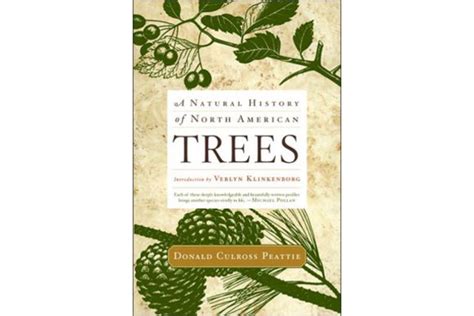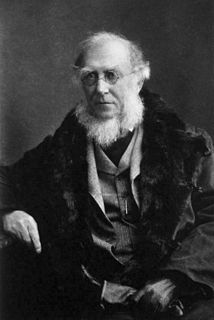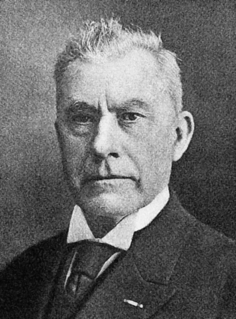A Quote by Carl Linnaeus
We admit as many genera as there are different groups of natural species of which the fructification has the same structure.
Related Quotes
Branches or types are characterized by the plan of their structure,
Classes, by the manner in which that plan is executed, as far as ways and means are concerned,
Orders, by the degrees of complication of that structure,
Families, by their form, as far as determined by structure,
Genera, by the details of the execution in special parts, and
Species, by the relations of individuals to one another and to the world in which they live, as well as by the proportions of their parts, their ornamentation, etc.
Genius detects through the fly, through the caterpillar, through the grub, through the egg, the constant individual; through countless individuals the fixed species; through many species the genus; through all genera the steadfast type; through all the kingdoms of organized life the eternal unity. Nature is a mutable cloud which is always and never the same.
I think there has been an unfortunate tendency for a lot of different groups to forget that distinction between natural law and revealed truth and to say: Our complete agenda is to be enacted into laws governing the entire society. Many different religious groups claim that authority, not only Catholics. A lot of different Protestant groups as well are stepping forward to say: Here is our agenda, it is a moral agenda, ergo it must be enacted into law. I think that the distinction between natural law and more ultimate kinds of doctrine is being lost.
You can imagine a different world in which a number of species developed with different genetically determined linguistic systems. It hasn't happened in evolution. What has happened is that one species has developed, and the genetic structure of this species happens to involve a variety of intricate abstract principles of linguistic organization that, therefore, necessarily constrain every language, and, in fact, create the basis for learning language as a way of organizing experience rather than constituting something learned from experience.
Zoologists have reckoned there are up to at least 750 species of animal that have been observed exhibiting same-sex behaviour, or gender role transformation (which is very common in a wide range of fauna). There is only one species on earth, however, which has exhibited homophobia or transphobia. And that is the species homo sapiens sapiens. Us. So let's not allow the foolish, ignorant or bigoted ever to use words like "natural."
Evolutionary biologists often avoid using the term "race" because there is so much racist baggage that comes with the term. However, they are often okay with the idea that the genealogy of human groups within our species can sometimes be inferred in much the same way as the genealogy of different species.
The several difficulties here discussed, namely our not finding in the successive formations infinitely numerous transitional links between the many species which now exist or have existed; the sudden manner in which whole groups of species appear in our European formations; the almost entire absence, as at present known, of fossiliferous formations beneath the Silurian strata, are all undoubtedly of the gravest nature.
After the revolution you have the problem of keeping things going, of sorting out all the different views. It's quite natural that revolutionaries should have different solutions, that they should split into different groups and then reform, that's the dialectic, isn't it - but at the same time they need to be united against the enemy, to solidify a new order.
Hackman's paradox: Groups have natural advantages: they have more resources than individuals; greater diversity of resources; more flexibility in deploying the resources; many opportunities for collective learning; and, the potential for synergy. Yet studies show that their actual performance often is subpar relative to "nominal" groups (i.e. individuals given the same task but their results are pooled.) The two most common reasons: groups are assigned work that is better done by individuals or are structured in ways that cap their full potential.
In the olden times, the diversity of groups was largely a geographical matter. There were many societies, but each, within its own territory, was comparatively homogeneous. But with the development of commerce, transportation, intercommunication, and emigration, countries like the United States are composed of a combination of different groups with different traditional customs. It is this situation which has, perhaps more than any other one cause, forced the demand for an educational institution which shall provide something like a homogeneous and balanced environment for the young.
The natural historian is not a fisherman who prays for cloudy days and good luck merely; but as fishing has been styled "a contemplative man's recreation," introducing him profitably to woods and water, so the fruit of the naturalist's observations is not in new genera or species, but in new contemplations still, and science is only a more contemplative man's recreation.






































